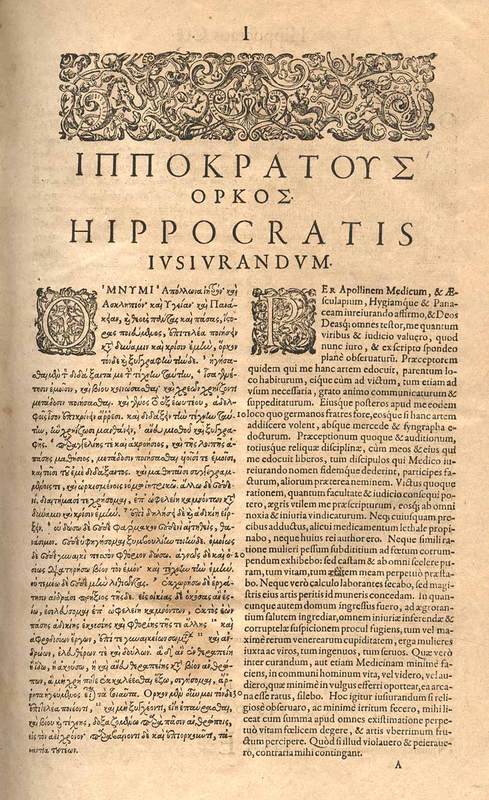Rights Denied
The Hippocratic Oath (Ορκος) is perhaps the most widely known of Greek medical texts. It requires a new physician to swear upon a number of healing gods that she will uphold a number of professional ethical standards. (NLM, History of Medicine Division)
Can you imagine having a disease for which there is a known effective treatment, yet this medicine is withheld from you?
Can you imagine going to the hospital for minor illness, or to give birth, and returning home having been sterilized?
In the interest of advancing science and medicine, poor and minority people have been subjected to questionable and unethical treatment. In the past, unethical medical practices were justified with beliefs of the social inferiority of certain population groups. There are many examples of medical research projects and medical practices in which the rights of the poor and minorities were denied.
Over the past 40 years, we have made progress in addressing some of the tragic episodes of the past. We now have guidelines for the use of human subjects, policies for informed consents, and patients’ bills of rights.
The “Belmont Report,” written by the National Commission for the Protection of Human Subjects of Biomedical and Behavioral Research, was signed into law in 1979. Three main principles of the report are:
Respect for Persons
- Individuals should be treated as autonomous agents
- Persons with diminished autonomy are entitled to protection
Beneficence
- Do not harm
- Maximize possible benefits and minimize possible harms
Justice
- The recruitment and selection of research subjects must be fair and not focus on vulnerable populations or those who may be easily coerced to take part
